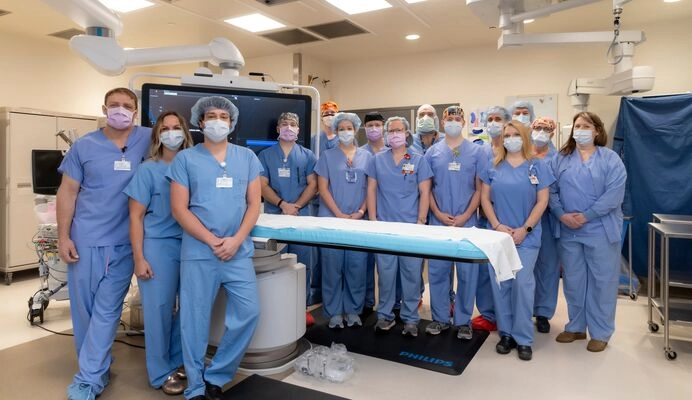Salem Health interventional cardiology
Advanced care for your heart without surgery
Interventional cardiology is a subspecialty of cardiology that focuses on minimally invasive procedures to treat structural heart disease (including congenital heart defects), coronary artery disease, heart-valve disease and vascular disease. These procedures
involve catheter-based and stenting techniques and are usually performed in a cardiac catheterization laboratory (cath lab).
The field of interventional cardiology represents a revolutionary way to treat heart and vascular disease. Without the risks and lengthy recovery time associated with traditional open surgery, interventional cardiology utilizes the newest technology and procedures to effectively treat cardiovascular disease.
Patients who have coronary artery blockages, valve disease or other heart defects that need repair may be good candidates for interventional cardiology procedures.

Tests and treatments
During heart catheterization, a long, thin tube known as a catheter is inserted in a vein or an artery leading to the heart. Guided by live X-rays, the catheter is guided through a blood vessel until it reaches the heart, where our expert team of cardiovascular doctors is then able to carry out a variety of diagnostic tests or administer heart treatment, such as a coronary angioplasty to open clogged arteries.
The advantage of catheterization is that it’s far less invasive than traditional surgeries. Because the catheters are so small, it also greatly decreases the risk of scarring and pain. Treatment is typically quick. You’ll often be able to return home the same day.